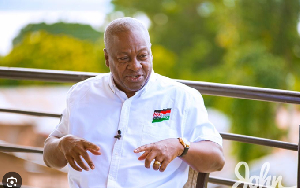The Bank of Ghana has described as preposterous, a request by shareholders and directors of the now-defunct UT Bank for the government to assume the cost of bad loans created by the bank at the expense of taxpayers while the shareholders benefitted from an injection of money from the government for the bad loans it would have assumed.
“It was such a self-serving proposition for shareholders, directors, and managers of UT Bank (some of whom were also shareholders) to mismanage the bank through poor credit administration and poor governance in general and require the state to bear the cost of the resulting bad loan portfolio. This was preposterous, as it would not only have cost taxpayers billions of Ghana cedis for nothing, but it would also have unduly rewarded the shareholders, directors and managers of a bank that had failed because of poor governance and management practices”, Governor of the Bank of Ghana, Dr Ernest Addison said at the 71st Annual New Year School and Conference.
He reiterated that his outfit’s immediate efforts to address the insolvency of UT Bank and Capital Bank started with meetings with the shareholders and directors of the two banks, where they shared with them the diagnosis of insolvency and requested them to implement measures to quickly restore their capital adequacy to prudential levels.
Ideally, the central bank is not required to do so under the law, as the two banks were already classified as insolvent by the technical assessment carried by BoG prior to the start of my administration, said Dr Addison.
Moreover, the Banks and Specialised Deposit-Taking Institutions Act of 2016 (Act 930) required the regulator to revoke a banking licence once an institution reached the stage of insolvency. Nevertheless, he said: “We gave these banks the opportunity to correct the insolvency and tried to exhaust all the options.”
Chronicling further the bad state of UT Bank, the Governor said the financial condition of UT Bank was so bad that when BoG engaged with other banks to explore whether they would be willing to acquire the bank and rehabilitate it, they showed unwillingness to do so after they had conducted their own independent due diligence on the bank.
In fact, one of such potential bank acquirers, after their due diligence exercise, noted: “The poor quality of loans assets, potential tax liabilities, existing litigations and demands by third party lenders for settlement of their accounts makes the acquisition of UT Bank as a going concern, a highly unattractive and risky proposition”.
This conclusion, he said was arrived at based on the factors such as UT bank had not filed corporate tax returns since 2015, asset quality was extremely poor with NPLs of 44 per cent, loans that had been classified as performing had not been serviced for a year, the bank having excessive risk concentration to a few major depositors, amongst others.
On Capital Bank, Dr Addison said it refused to cooperate with potential private sector acquirers and was not even going to allow due diligence to be carried out.
“We convened several meetings with shareholders and directors of the bank to try to ensure that they cooperated with the potential acquirers but their posture remained one of defiance because they had become accustomed to getting things done through influence peddling.”
He added that the Bank of Ghana had previously approved several applications for liquidity support to Capital Bank on unjustifiable grounds and Capital bank did not foresee that the BOG would behave differently even under the new management.
Plan to liquidate UT and Capital Banks
Three months into office of the new BoG Management, the Governor said they reached a decision to revoke the licences of the two banks but needed to plan the execution of that decision.
He explained that several issues came up.
“For instance, will revoking the licences on a Friday night be better to allow some time for the receivers to take effective control of the two banks over the weekend or would any other day be suitable? or what would be the fate of those who had claims on the two banks? amongst others In particular,
After all these considerations, the Governor said government agreed to provide relief to depositors by stepping in to guarantee the payment of all depositors’ funds.
This paved the way for the Bank of Ghana to finalise what was to become its eventual resolution approach of protecting depositors from losses by allowing depositors’ claims to be transferred through a Purchase & Assumption transaction to a strong and indigenous acquiring bank, that is GCB Bank.
Business News of Thursday, 16 January 2020
Source: classfmonline.com

















